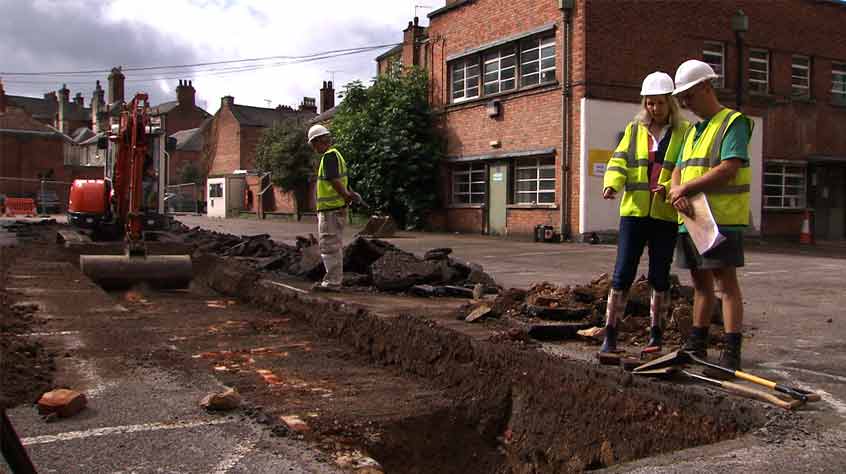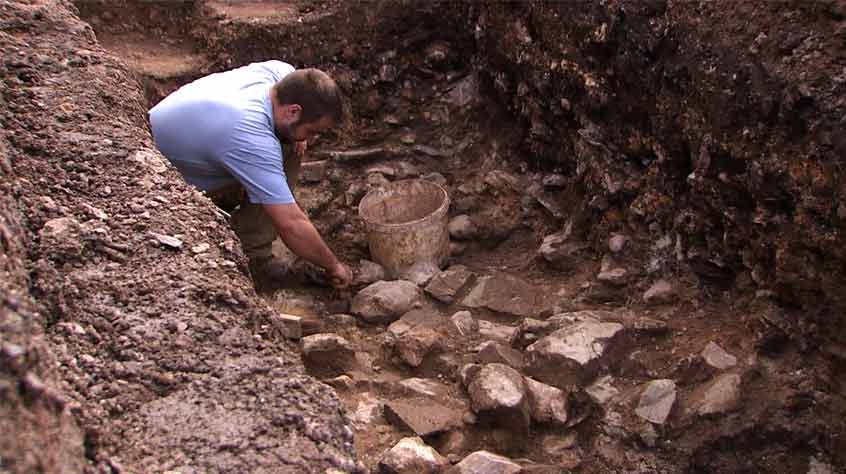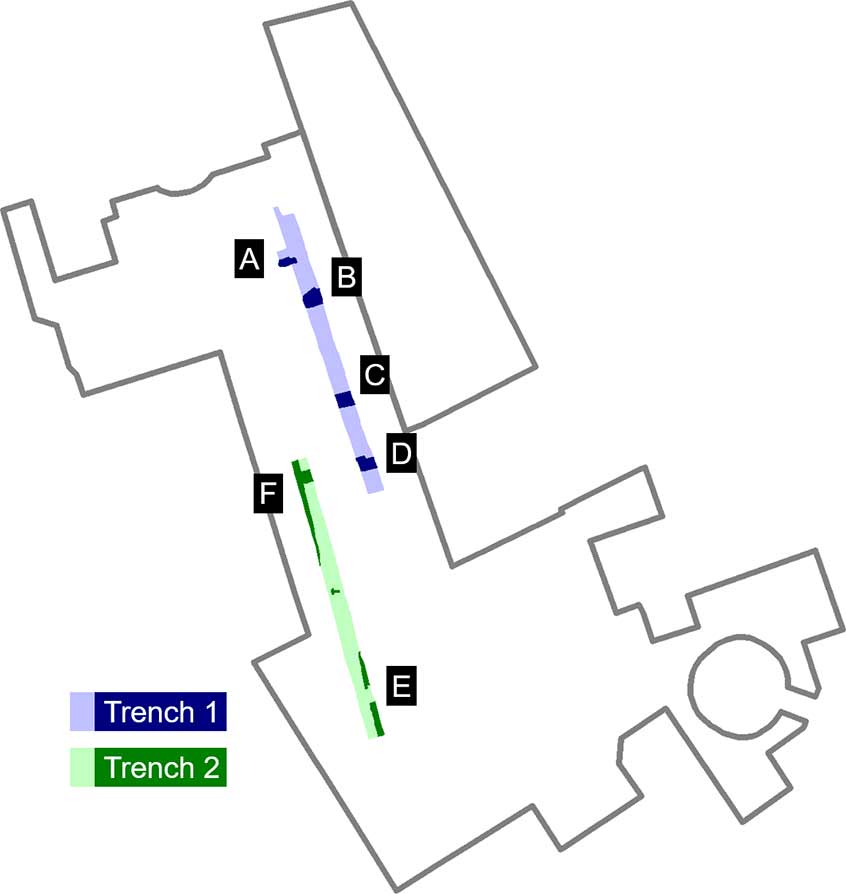Richard III: Discovery and identification
Finding the remains of the Franciscan friary
Saturday 25 August (Week 1)
The project began with the digging of Trench 1, which was 1.6m wide and ran for 30m approximately north/south in the Social Services car park. At first, ground beneath the car park appeared to be very disturbed and brick and concrete wall footings for buildings dating back over the last 100 years had to be removed to reach the medieval archaeology beneath.

The first noteworthy discovery was a human left leg bone at the edge of the trench – a good find but not particularly surprising when excavating near a church. This was found approximately 5m from the north end of the trench, about 1.5m below modern ground level. Careful examination revealed a parallel right leg, indicating an undisturbed grave (pleasing but again not unexpected). The remains (A) were covered to protect them from the weather until more was known about where they were located within the friary. In hindsight, the rather Shakespearean thunderstorm that heralded the discovery and the letter ‘R’ painted in a parking bay nearby proved to be rather portentous!
Trench 1 was incomplete at the end of the day due to a two-hour delay when the digger threw a track; however, results were promising. Archaeologists had uncovered a patch of disturbed ground (B), an east–west robbed wall (C) with possibly part of a low stone wall alongside it, and large quantities of medieval building rubble, all suggesting the presence of an important medieval building in the vicinity, most likely part of the friary.


Objective 1 achieved: the friary buildings located. Our next task was to identify clues to the position and orientation of the buildings.